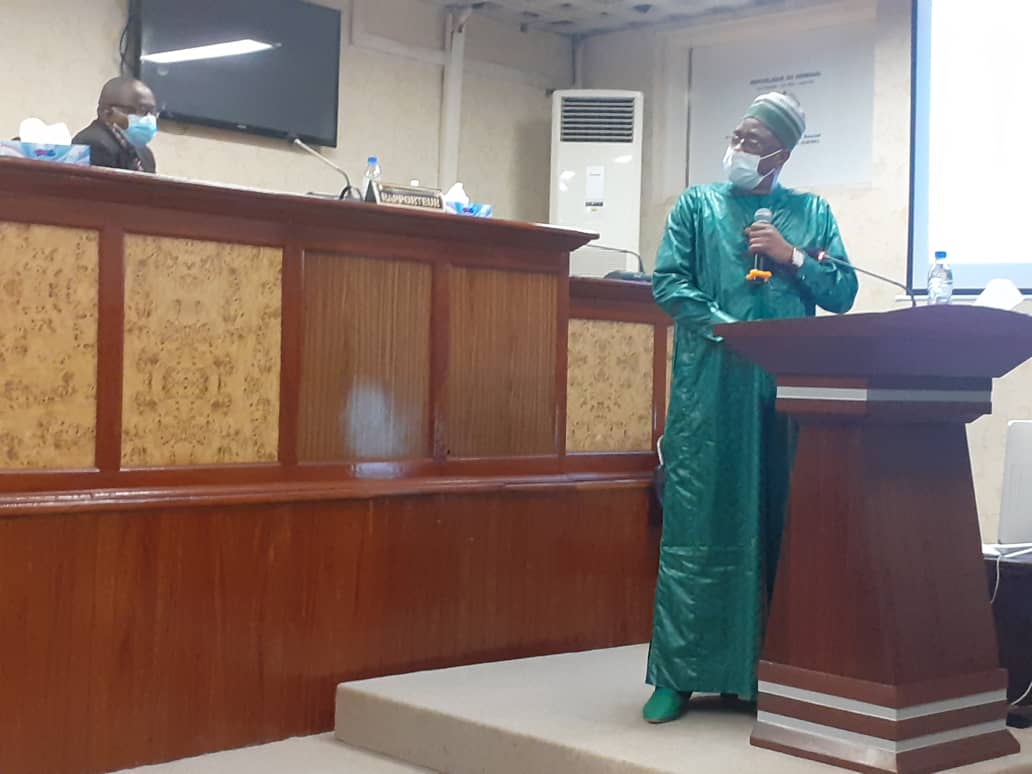The CESE applauds the expertise of COSC-GFF
The Coalition of Civil Society Organizations engaged in the Global Financing Facility
in Senegal (COSC/GFF) made its mark during the activities of the second session of the Economic, Social and Environmental Council for the year 2020. The coalition was invited to share some observations with the Honourable Councillors on the theme “Social protection, financing and governance of the health sector in Senegal.”
Through a colorful and well-articulated presentation, the Coalition’s representative, Amadou Kanouté, Executive Director of CICODEV Africa, shared some observations on health sector financing and governance. These are marked by low prioritization of the health sector with a Ministry of Health budget that represents 5.16% of the overall state budget in 2020. A high relative efficiency of the health sector was also listed as well as a financial risk and a lack of equity for citizen-users. All of these shortcomings led the government to set up Universal Health Coverage. The representative of the COSC-GFF continued his presentation before the public, all committed to his cause. He mentioned having observed a weak synergy between the families of actors within the health sector. All these shortcomings are the basis of his conviction for the relevance of GFF financing. The Global Financing Facility to Support Every Woman, Every Child (GFF Global Financing Facility) is a new financing mechanism that aims to help end maternal and child deaths and improve the quality of life and health of women, children and adolescents.
The specificities of this new health financing mechanism (the GFF) are in line with the principles and concerns of civil society actors. “This is why we organized ourselves from the outset in a coalition to commit ourselves to support its development and the effectiveness of its implementation in our country,” he said.
In view of the observations and lessons learned, the COSC-GFF shared several recommendations with the CESE, including the identification and promotion of Endogenous Health Financing Mechanisms (MEFS/EHMF) for the extension of health risk coverage through enrolment strategies, particularly for indigent targets in health mutual companies. Also, the need to regulate Public Private Partnerships (PPPs) as well as the need for consistent and priority health financing to move resolutely towards at least reaching the Abuja 15% target. The COSC-GFF also recommends the cancellation of the debt that weakens our capacity to invest in the social sectors of health and education. The development of effective accountability and reporting mechanisms is also one of the strong recommendations made by the COSC-GFF, whose participation in the session was greatly magnified by the members of the Economic, Social and Environmental Council through a thank-you correspondence.

